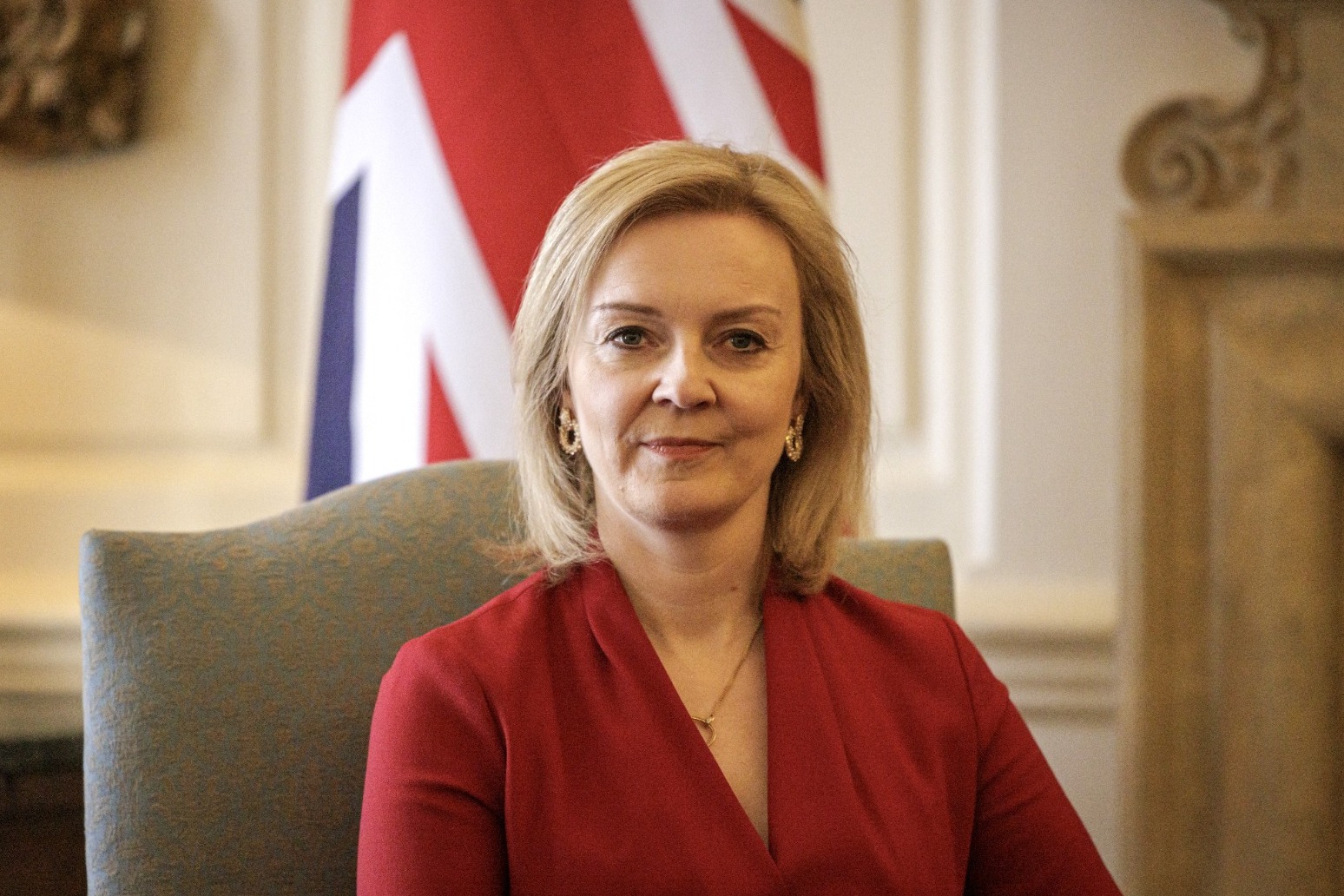
Liz Truss and G7 leaders to meet after latest Russian assault on Ukraine
At least 11 people were killed in missile strikes on major cities, including the capital Kyiv
Liz Truss will urge G7 leaders to remain steadfast in support of Ukraine during crisis talks on Tuesday following Russian strikes on Kyiv and other major Ukrainian cities.
The Russian attack on Monday, which left at least 11 dead and 64 injured, was launched by Moscow in retaliation for what Vladimir Putin claimed was a terrorist act carried out by Ukrainian special services on a bridge linking Russia with Crimea.
International outcry was swift in the wake of the latest Russian assault, labelled by some as a sign of President Putin’s growing desperation in the face of staunch Ukrainian resistance.
But in a sign of how seriously Western leaders are taking the Russian bombardment, Ms Truss and her G7 counterparts will hold a virtual meeting later on Tuesday, with the Prime Minister also expected to call for a full meeting of Nato leaders in the coming days.
The video call will also be attended by Ukrainian President Volodymyr Zelensky, who spoke to Ms Truss and other world leaders on Monday.
Meanwhile, the head of Britain’s GCHQ intelligence agency is set to say that Ukraine is successfully “turning the tide” against the “exhausted” Russian forces, who are running out of ammunition.
Ms Truss is expected to urge fellow G7 leaders to “stay the course” in the battle against Mr Putin.
“The overwhelming international support for Ukraine’s struggle stands in stark opposition to the isolation of Russia on the international stage,” she is expected to say on Tuesday.
“Their bravery in the face of the most brutal acts of violence has earned the people of Ukraine global admiration.
“Nobody wants peace more than Ukraine. And for our part, we must not waver one iota in our resolve to help them win it.”
G7 leaders are also likely to discuss the global energy crisis sparked by Russia’s invasion, amid plans to introduce a global cap on the price of Russian oil to target Mr Putin’s revenues.
On Monday, Mr Zelensky said Ukraine counts on the UK’s “leadership in consolidating international political and defence support for Ukraine, in particular regarding the protection of our skies”.
Ms Truss has said she is committed to following the example of her predecessor Boris Johnson, who offered ardent support for Ukraine since the start of the Russian invasion.
Ukraine on Monday called for Western allies to provide anti-air and anti-missile systems in response to the attacks.
Kyiv was targeted for the first time in months, while Russia also hit civilian areas and energy infrastructure across the country, from Kharkiv in the east to Lviv near the Polish border.
Mr Putin confirmed the strikes were a retaliation for what he called Ukraine’s attack on the Kerch Bridge, a crossing between Russia and the annexed Crimea region that has strategic and symbolic importance.
He said if Ukraine continues to mount “terrorist attacks” on Russia, the Kremlin’s response will be “tough and proportionate to the level of threats”.
Labour leader Sir Keir Starmer joined the condemnation of Russia’s actions, calling the Russian attacks “unjustifiable”.
“The UK is firmly united in condemning Putin’s latest wave of violence and destruction,” he said.
In a speech on Tuesday, GCHQ boss Sir Jeremy Fleming will say that the Russian people are beginning to understand just how badly Mr Putin and his “flawed” decision-making has misjudged the “courageous reality of the Ukrainian defence”.
“So, far from the inevitable Russian military victory that their propaganda machine spouted, it’s clear that Ukraine’s courageous action on the battlefield and in cyberspace is turning the tide,” he will say.
Giving the annual Royal United Services Institute security lecture, the intelligence chief will say that Russian “gains are being reversed” in a “staggering” cost to Moscow in terms of people and equipment.
“We know – and Russian commanders on the ground know – that their supplies and munitions are running out,” Sir Jeremy will say, according to an excerpt from his speech shared in advance.
“Russia’s forces are exhausted. The use of prisoners to reinforce, and now the mobilisation of tens of thousands of inexperienced conscripts, speaks of a desperate situation.
“And the Russian population has started to understand that too. They’re seeing just how badly Putin has misjudged the situation. They’re fleeing the draft, realising they can no longer travel.
“They know their access to modern technologies and external influences will be drastically restricted. And they are feeling the extent of the dreadful human cost of his war of choice.”
Published: by Radio NewsHub